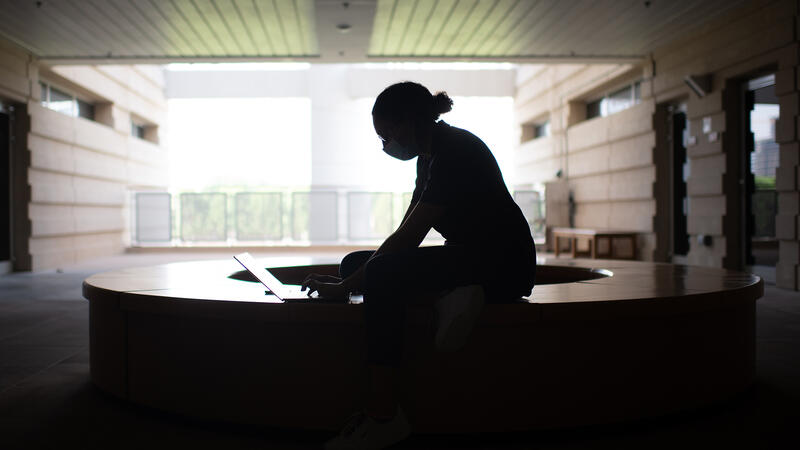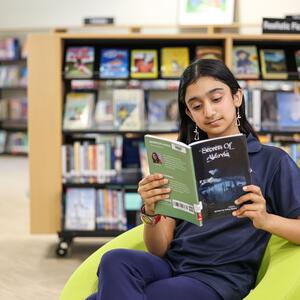
The world is operating differently compared to just one year ago. COVID-19 has had—and continues to have—widespread socioeconomic effects that have forced businesses, schools, and individuals to remodel their upcoming months. In terms of education, the introduction of the coronavirus has resulted in a global digital shift, where online schooling has gained prominence. Not only do the teachers and facilitators of education have to consider new ways of ensuring that students are grasping concepts just as efficiently as they would in a traditional classroom setting, but students are also experiencing disruptions in their studies and must adapt to learning either online or in schools with new health measures. Furthermore, student-led organizations in schools across the world are faced with unforeseen challenges in terms of continuing their service and allowing students to still actively participate. School organizations and clubs have also had to plan for a distance option and are considering new ways of operating online. However, schooling online is easier for some than others. Those who have access to the proper resources have had negligible challenges to their education, and often overlook the opportunities they still have access to as opposed to those who may not have adequate technology or even internet access.
Before COVID-19, E4E would hold weekly sessions after the school day, where the support staff at ASD could attend and have a one-on-one or group lesson to enhance their English skills.
I am fortunate to have been able to continue my studies at my high school without great disruption. I have access to high-speed internet which allows me to attend online classes, and if I feel that I have not completely understood a concept or require extra practice, I have access to online resources including PDFs and worksheets. Furthermore, I have supplies and stationery including pencils, pens, and paper, which are necessary for completing worksheets and revisions.
The above-stated resources may not be much for some, but these are often overlooked when considering other students in underdeveloped areas not only in the Middle East region but around the world. At the American School of Dubai (ASD), a program called English 4 Everyone (E4E) is committed to eliminating disparities by providing English lessons and immersion activities to the Facilities and Operations Support Staff at the school. According to the Central Intelligence Agency World Factbook, over 85% of the population in the United Arab Emirates (UAE) consists of expatriates. Those who facilitate the program believe that English is considered a common-ground language in the UAE, and a basic understanding of the language can allow for better communication with others.
Before COVID-19, E4E would hold weekly sessions after the school day, where the support staff at ASD could attend and have a one-on-one or group lesson to enhance their English skills. The one-on-one interactions and experiences enabled the learners to improve their interpersonal speaking skills, writing, and reading comprehension while being able to ask the ASD students any questions they had. The ASD students were able to establish a connection with the workers and facilitate their learning and understanding. In addition, the support staff members who attended the program would regularly see an improvement in their understanding and comprehension of the language. Many participated in a Resume Writing Workshop and received certificates upon completion. In terms of the planning, student volunteers in the program would arrive at the classroom ahead of time and prepare stationery and printed resources including worksheets and comprehension passages. The ASD middle school and high school library would also lend some books so that the attendees could have a variety of activities. In some cases, if a staff member was unable to understand a term in English, the ASD volunteers would use Google Translate and translate words from English to other languages including Hindi, Urdu, Nepalese, and Bengali.
The facilitators of the program were planning on continuing the same format of lessons and expanding the club in the school. However, the COVID-19 pandemic resulted in a shift of thinking, and innovative ideas were required to be able to maintain the same meaningful interactions while continuing to teach the language. Different aspects had to and are continuing to be considered, including a website with resources and meeting schedules, access to technological devices—primarily computers—that can support the website and call format, and individual email addresses. Furthermore, because meeting with staff members during school is limited, all discussion to create the new format of the program is taking place online through emails and Google Meet calls.
"The COVID-19 pandemic resulted in a shift of thinking, and innovative ideas were required to be able to maintain the same meaningful interactions while continuing to teach the language."
Along with the negative medical and economic implications the COVID-19 pandemic has had around the world, it has forced student-led organizations to reconsider their plans for the upcoming year. In terms of high school, the pandemic has impacted student organizations in ways unknown to those before; but, this serves as an opportunity for students to implement their own unique and digitally-oriented measures to not only ensure that everyone involved is protected from the virus but to also creatively tackle an issue the world is still trying to decipher. The pandemic has also exposed students to the struggles major companies and institutions are facing today. Students are given this opportunity to gain experiences that will benefit them when tackling unique problems that come their way in a strategic and thoughtful manner.
- Student



